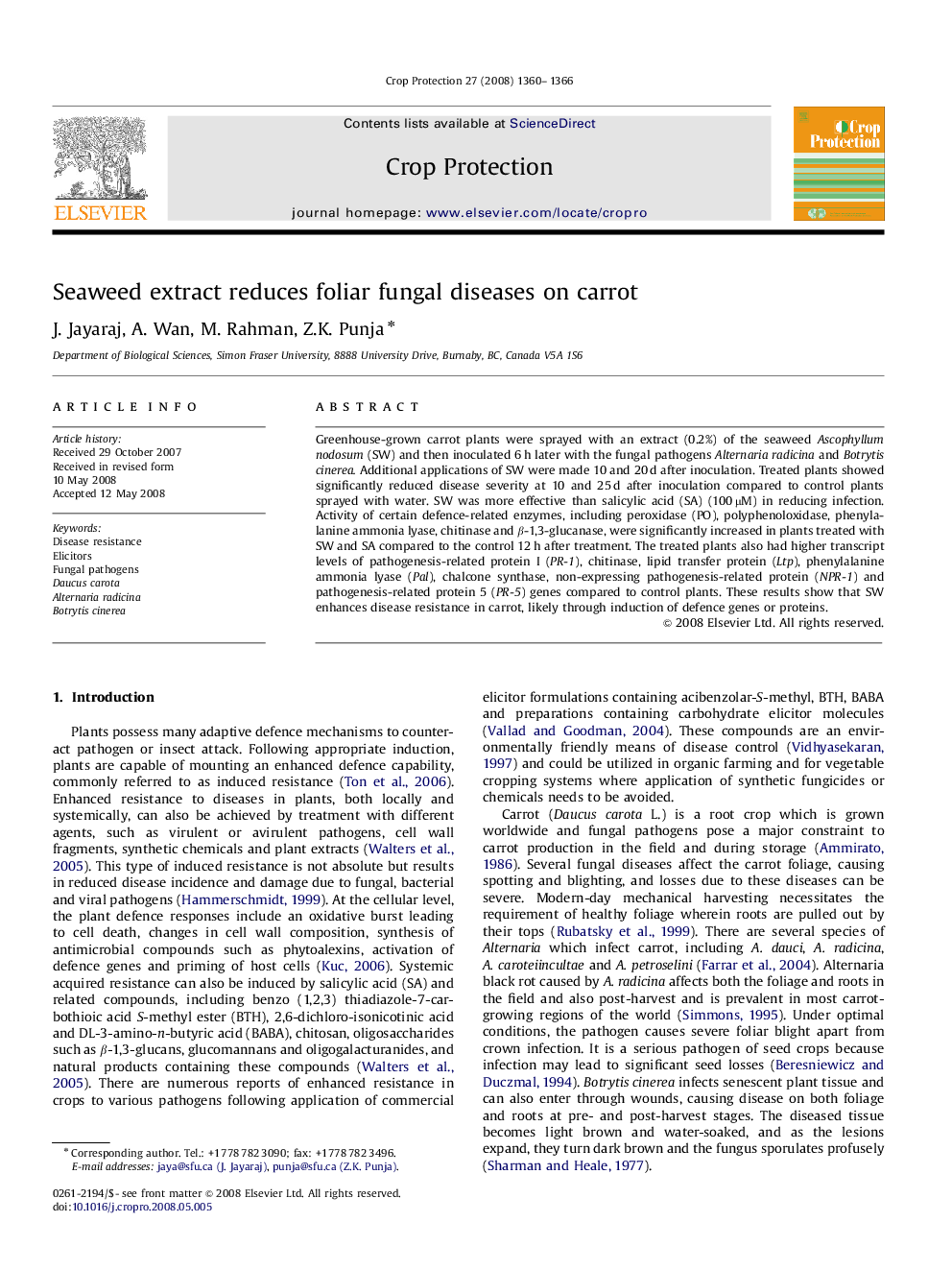| Article ID | Journal | Published Year | Pages | File Type |
|---|---|---|---|---|
| 4507665 | Crop Protection | 2008 | 7 Pages |
Greenhouse-grown carrot plants were sprayed with an extract (0.2%) of the seaweed Ascophyllum nodosum (SW) and then inoculated 6 h later with the fungal pathogens Alternaria radicina and Botrytis cinerea. Additional applications of SW were made 10 and 20 d after inoculation. Treated plants showed significantly reduced disease severity at 10 and 25 d after inoculation compared to control plants sprayed with water. SW was more effective than salicylic acid (SA) (100 μM) in reducing infection. Activity of certain defence-related enzymes, including peroxidase (PO), polyphenoloxidase, phenylalanine ammonia lyase, chitinase and β-1,3-glucanase, were significantly increased in plants treated with SW and SA compared to the control 12 h after treatment. The treated plants also had higher transcript levels of pathogenesis-related protein I (PR-1), chitinase, lipid transfer protein (Ltp), phenylalanine ammonia lyase (Pal), chalcone synthase, non-expressing pathogenesis-related protein (NPR-1) and pathogenesis-related protein 5 (PR-5) genes compared to control plants. These results show that SW enhances disease resistance in carrot, likely through induction of defence genes or proteins.
